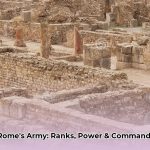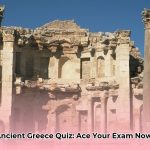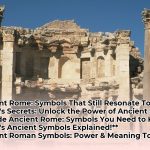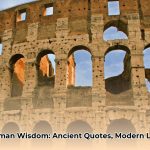Ancient Athens, the cradle of democracy, pioneered a revolutionary system where ordinary citizens directly shaped their society. This profound historical experiment, known as “demokratia” (meaning “rule by the people”), laid the groundwork for political thought and governance that resonates even today. Read more about the roots of democracy in Greece. By examining the intricate mechanics, inherent limitations, and eventual decline of Athenian democracy, we uncover invaluable insights for strengthening contemporary political systems and fostering more effective citizen participation.
The Foundational Pillars of Athenian Democracy
Emerging in the late 6th century BCE, Athenian democracy marked a radical departure from aristocratic rule, placing unprecedented political power in the hands of its citizens. Cleisthenes, often lauded as “the father of Athenian democracy,” instituted reforms around 508 BC that restructured society into ten new tribes based on residence, diminishing the influence of noble families and promoting greater equality in political engagement.
The Ekklesia: The Sovereign Assembly of Citizens
At the core of Athenian democratic life was the Ekklesia, or Assembly, the supreme governing body. This direct forum convened approximately 40 times a year on the Pnyx hill, a natural amphitheater west of the Acropolis capable of holding between 6,000 and 13,000 citizens. Any adult male citizen, typically over 18 years old, was not only welcome but expected to attend and participate. Of Athens’ male citizen population, which ranged from 30,000 to 60,000 throughout the 4th and 5th centuries BCE, around 6,000 regularly attended.
In the Ekklesia, citizens debated and voted directly on critical matters of state, including laws, foreign policy, declarations of war, and financial decisions. Voting was typically conducted by a simple show of hands, with nine “chairmen” assessing the outcome. The Assembly also held the power of ostracism, allowing citizens to vote to exile an individual for ten years, primarily as a safeguard against potential tyranny. This direct legislative and executive power truly embodied the principle that major decisions should originate directly from the populace, promoting what they called parrhēsia, or freedom of speech, a privilege highly valued by citizens.
The Boule: Orchestrating Policy and Administration
Complementing the Ekklesia was the Boule, or Council of Five Hundred. This crucial administrative body consisted of 500 citizens, 50 from each of the ten Athenian tribes, chosen by lot to serve for one year, with a maximum of two non-consecutive terms. The Boule met daily, performing the hands-on work of governance. Its primary function was to prepare the agenda for the Ekklesia, ensuring that discussions were structured and that important issues received due consideration. The Boule also supervised government workers, managed public finances, and dealt with ambassadors from other city-states.
A smaller executive committee of the Boule, known as the prytaneis, comprised 50 citizens from one of the ten tribes, serving on a rotation basis. This 50-man body met in the Bouleuterion in the Athenian agora and oversaw daily government operations, with a chairman (epistates) chosen by lot each day. This complex system of interlocking bodies aimed to involve all of Attica in the political process, fostering a unique collective identity.
The Dikasteria: Justice by the Citizenry
The Athenian judicial system, the Dikasteria, represented another cornerstone of direct citizen involvement. Rather than professional judges, the courts relied on large citizen juries, often comprising 500 or more jurors, selected by lot from a pool of male citizens over 30 years old. Jurors were paid a wage, ensuring that participation was accessible even to those who were not wealthy. As Aristotle argued, the Dikasteria “contributed most to the strength of democracy” due to the jury’s almost unlimited power.
Citizens themselves brought court cases, argued for both prosecution and defense, and delivered verdicts and sentences by majority rule. The random selection process, facilitated by machines like the kleroterion using bronze dice, aimed to ensure impartiality and prevent bribery or influence based on wealth or connections. Financial support for these payments came from various sources, including customs duties, contributions from allies, and taxes levied on foreign residents (metoikoi). Additionally, wealthy citizens often volunteered to fund major civic undertakings through a special tax known as leitourgia, or liturgy, such as maintaining a navy ship (trierarchia) or sponsoring public festivals.
The Role of Sortition: Ensuring Equality of Opportunity
One of the most distinctive and revolutionary features of Athenian democracy was the widespread use of sortition (selection by lot) for filling many public offices, including positions in the Boule, Dikasteria, and various administrative roles. This method was not merely random; it was a deliberate philosophical choice to embody true democracy and isonomia (equality before the law).
Athenians believed sortition prevented corruption, minimized the influence of wealth and popularity, and ensured that every eligible citizen had an equal opportunity to serve. The process itself was highly sophisticated. For instance, to select members for the Council of Five Hundred, Athenians used a system known as triage. Each eligible citizen possessed a personalized pinakion, a small bronze identification plate. These plates were inserted into a kleroterion, an ingenious marble lottery machine. Overseers would then release white and black bronze dice through a funnel into a narrow tube. The color of the dice determined the fate of rows of plates, with white dice selecting a row and black dice eliminating it. This ensured that, regardless of the outcome, all tribes maintained equal representation. Sortition eliminated pre-election manipulation and ensured that office was genuinely open to all, not just those with wealth, rhetorical prowess, or connections.
The Inherent Imperfections: Limitations and Challenges
Despite its pioneering nature, Athenian democracy was far from perfect by modern standards. It grappled with significant limitations and inherent challenges that contributed to its eventual decline.
Restricted Citizenship and Exclusion
A foundational critique of Athenian democracy lies in its exclusionary nature. Citizenship was strictly confined to adult male Athenians born to Athenian parents. This policy systematically excluded women, slaves (who numbered around 150,000 in the mid-4th century BCE), and foreign residents (metics, approximately 10,000), despite these groups constituting a substantial majority of the population. Out of an estimated total population of around 260,000, only about 40,000 male citizens (aged 18 and older) were part of the demos and could participate in the democratic process. This starkly contrasts with contemporary democratic ideals of universal suffrage and comprehensive inclusivity.
Vulnerability to Oratory and Demagoguery
The direct nature of the Ekklesia made it susceptible to the influence of charismatic orators, or demagogues. These figures could sway public opinion through persuasive rhetoric and emotional appeals, rather than solely on reasoned argument or evidence. As critics like Thucydides and Aristophanes noted, the dēmos could be easily swayed by a good speaker, leading to impulsive or poorly informed decisions. The infamous trial and execution of the philosopher Socrates in 399 BCE stands as a stark example of how public sentiment, manipulated by oratory, could lead to regrettable outcomes.
Furthermore, the practice of ostracism, while intended to prevent tyranny by allowing citizens to exile potentially dangerous individuals for ten years, could also be misused. It sometimes served as a tool to silence dissenting voices or remove political rivals, undermining aspects of truly free political discourse.
Economic Disparities and Elite Influence
Despite the lottery system’s aim to ensure fairness and prevent the concentration of power, historical accounts suggest that wealthy and influential citizens often managed to exert significant influence within the Boule and other institutions. Their financial resources provided them leisure time to participate actively in public service, attend frequent assembly meetings, and potentially influence political outcomes through their social networks. Though theoretically all citizens were equal, a small elite—perhaps as few as 100 citizens, comprising the wealthiest, most influential, and most skilled speakers—often dominated the political arena, both in the public assembly and through private, conspiratorial political meetings (xynomosiai) and groups (hetaireiai). These subtle forms of influence meant the system, in practice, was not always as egalitarian as its theory suggested.
The Decline of a Pioneering System
The innovations of Athenian democracy, which thrived during Athens’s “Golden Age,” eventually gave way to external pressures and internal weaknesses.
Economic Hardship and Social Unrest
The prolonged and devastating Peloponnesian War (431-404 BCE) severely strained Athens’s economic resources and infrastructure. The costly conflict exacerbated existing social disparities, widening the gap between the wealthy elites and an increasingly impoverished populace. This economic hardship fueled social unrest, eroded public trust, and contributed to growing political instability. The inability of the democratic system to effectively address these deep-seated grievances paved the way for internal challenges to its legitimacy.
The Rise of Oligarchy and Internal Conflicts
Internal conflicts were further compounded by the rise of charismatic demagogues who often exploited public discontent for personal ambition, prioritizing fleeting popular sentiment over the common good. This manipulation fragmented Athenian society and undermined the stability of the democratic process. During a particularly dark period of the Peloponnesian War, in 411 BCE, Athenian democracy was temporarily replaced by a system of oligarchy, a coup driven by the belief that such a constitutional change would garner much-needed support from Persia against Sparta. Although democracy in a slightly altered form eventually returned, this period revealed the system’s susceptibility to internal power struggles and its fragility under extreme stress.
External Pressures and Conquest
While grappling with internal strife, Athens faced an existential threat from external forces. The rising military power of Macedonia, first under Philip II and later his son Alexander the Great, proved decisive. Macedonian military dominance systematically eroded the independence of the Greek city-states, culminating in their subjugation. The Macedonian conquest replaced Athenian democratic self-governance with monarchical rule, effectively ending the independent political life of the Greek city-states. The final blow came with the Roman conquest in 31 BCE, which fully absorbed Greek territories into its vast empire, extinguishing any remaining vestiges of Athenian autonomy and the democratic experiment.
Athenian Echoes: Enduring Lessons for Modern Governance
Despite its limitations and eventual fall, Athenian democracy left an indelible mark on political thought, shaping fundamental concepts like citizen participation, equality before the law (isonomia), and the right to speak freely (parrhēsia). Modern democracies, predominantly representative due to scale and complexity, continue to grapple with challenges reminiscent of ancient Athens: balancing majority rule with minority rights, ensuring an informed and engaged citizenry, and preventing the undue concentration of political power. As the historian K. A. Raaflaub aptly summarized, Athenian democracy was “a unique and truly revolutionary system that realized its basic principle to an unprecedented and quite extreme extent: no polis had ever dared to give all its citizens equal political rights, regardless of their descent, wealth, social standing, education, personal qualities, and any other factors that usually determined status in a community.”
Direct Participation vs. Representative Governance
Contemporary governments contrast sharply with Athens’s direct democracy; modern systems primarily rely on elected representatives due to larger populations and complex governance needs. While this shift accommodates scale, it prompts critical questions about the degree of individual citizen power. Both ancient and modern forms, however, underscore the fundamental importance of civic engagement and citizen involvement in shaping public policy. Modern representative democracies, like those in the United States, Canada, and South Africa, inherit the spirit of citizen rule but adapt it through elected officials who legislate on behalf of the populace.
The Pursuit of Comprehensive Inclusivity
Ancient Athens’s restricted citizenship stands in stark contrast to modern ideals of universal suffrage. While 21st-century systems strive for broader participation, challenges like voter apathy, partisan polarization, and the pervasive influence of wealth in politics persist. This historical comparison compels us to continuously evaluate whether contemporary democracies have truly achieved comprehensive inclusivity or if new forms of systemic, economic, or technological exclusion have emerged that limit broad, equitable participation.
The Enduring Question of Checks and Balances
The intricate system of checks and balances within Athenian democracy, with its randomly selected boule and dikasteria designed to prevent individual or small-group domination, offers valuable insight. Modern democracies also implement sophisticated systems of checks and balances across legislative, executive, and judicial branches. However, the influence of money in political campaigns, lobbying, and media ownership raises ongoing concerns about equitable representation and potential corruption, prompting a critical examination of whether current safeguards sufficiently protect against undue influence or merely provide a veneer of accountability. The Athenian belief in isonomia serves as a timeless reminder of the ideal.
Technology’s Dual Role in Modern Democracies
Technology presents both transformative opportunities and significant risks for modern democracies. It holds the potential to enhance citizen participation through innovations like secure online voting systems, digital town halls, and accessible public information platforms, making governance more transparent and accessible. Conversely, it introduces new vulnerabilities, including sophisticated cybersecurity threats to electoral integrity, the widespread dissemination of misinformation and disinformation (“fake news”), and the creation of echo chambers that can distort informed public discourse and fuel societal division. The challenge lies in leveraging technology to strengthen democratic processes and expand civic engagement while robustly mitigating its inherent dangers to electoral fairness and public trust.
Actionable Steps for Strengthening Democracy Today
Learning from the historical successes and failures of Athenian democracy, and confronting present challenges, can pave the way for more robust and equitable democratic systems.
| Stakeholders | Short-Term (0-1Y) | Long-Term (3-5Y) |
|---|---|---|
| Governments | Invest significantly in comprehensive, accessible civic education programs across all age groups to combat voter apathy and enhance political literacy. Integrate civics into national curricula. | Explore and implement secure, verifiable, and transparent online voting systems and digital participation platforms to enhance accessibility and public engagement while combating digital threats to electoral integrity. |
| Civil Society Orgs | Organize frequent, inclusive public forums, debates, and community dialogues to foster informed citizen engagement, critical thinking, and respectful deliberation on key policy issues. | Advocate for and support comprehensive campaign finance reforms, including public financing of elections, to significantly reduce the influence of private money in politics and promote more equitable representation in governance. |
| Educational Institutions | Integrate in-depth comparative democracy studies into school and university curricula, emphasizing both the foundational ancient principles (like those of Athens) and contemporary democratic challenges and innovations globally. | Conduct rigorous, interdisciplinary research on the impact of emerging technologies (e.g., AI, blockchain) on democratic processes and develop proactive strategies to mitigate risks (e.g., deepfakes, algorithmic bias) while maximizing opportunities for citizen empowerment and participation. |
The study of Athenian democracy offers a valuable and timeless lens through which to critically examine the challenges and opportunities facing modern governance models. By understanding the strengths and weaknesses of this ancient experiment in self-rule, we can gain profound insights into how to foster more just, equitable, and effective political systems for the future. It suggests that, while a pure direct democracy might not be feasible in today’s large and complex societies, the enduring principles of citizen empowerment, broad participation, and accountability remain as relevant and urgent as ever. The ancient Greeks provided humanity not only with fine art, breathtaking architecture, and profound philosophy but, perhaps most enduringly, the revolutionary idea of democracy itself.
For further exploration of the historical context of Athenian democracy, comprehensive resources include the World History Encyclopedia (https://www.worldhistory.org/Athenian_Democracy/). The Peloponnesian War, a key factor in Athens’s decline, is also detailed on various historical platforms, including History.com (https://www.history.com/articles/ancient-greece-democracy) and National Geographic (https://education.nationalgeographic.org/resource/democracy-ancient-greece/). Insights into the nuanced mechanics of Athenian governance, such as sortition, can be found on Greek Reporter (https://greekreporter.com/2025/07/06/governance-direct-democracy-ancient-greece/).
Primary Keyword: Athenian democracy
LSI Keywords: direct democracy, ancient Greece, modern governance, citizen participation, political systems, democratic principles, civic engagement, public officials, political power, Athenian values, representative democracy, checks and balances, political reforms, historical lessons, governance models, social equity, electoral systems, civic education, policy making, rule of law, majority rule, minority rights, political decision-making, Cleisthenes, Ekklesia, Boule, Dikasteria, sortition, demagogues, ostracism, Peloponnesian War, Macedonia.
- Unearth ancient rome achievements: Engineering feats & legal legacies, examined - August 13, 2025
- Unlock ancient rome army ranks: Power, impact & legion command - August 13, 2025
- Conquer Your Exam: Ancient Greece Quiz Ace It Now! - August 13, 2025















